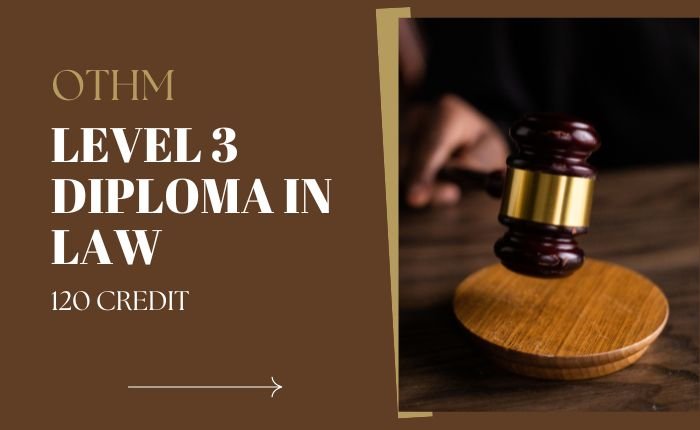OTHM Level 3 Diploma in Law (120 Credit)

About Course
| Credits | Awarding body | Course Code | Delivery mode |
| 120 | OTHM, UK – an Awarding body by the UK Government’s regulator – Ofqual | 610/3541/5 | Online |
Overview
The objective of the OTHM Level 3 Diploma in Law is to provide students with a grounding in the legal system of England and Wales. The qualification will help students understand how the legal system operates, how the legal system works as a function, and some of the key laws that underpin the legal system. Students will be able to develop their academic skills and capabilities around the law and prepare them for further study.
Entry Requirements:
The OTHM Level 3 Diploma Law qualification can be offered to learners from age 16.
OTHM does not specify entry requirements for these qualifications, but delivery centers are required to ensure that learners admitted to the program have sufficient capability at the right level to undertake the learning and assessment.
OTHM Centre must ensure learners are recruited with integrity onto appropriate qualifications that will:
- Meet their needs
- Enable and facilitate learning and achievement
- Enable progression
Mandatory Units:
- Introduction to Law and Practice (20 Credits)
- Principles of Contract Law (20 Credits)
- Principles of Criminal Law (20 Credits)
- Introduction to Employment Law (20 Credits)
- Aspects of Tort Law (20 Credits)
- Academic and Research Skills for Law (20 Credits)
Payment plans:
1. Option 1: (£600.00 +1.5% transaction fee) and get a 5% discount on the total fee when you pay in full.
2. Option 2: (£300+1.5% transaction fee) upon enrolment and pay the rest on the next month.
To pay in installments please Contact us.
Course Content
Unit 1: Introduction to Law and Practice
-
Lecture 1
00:00 -
Handbook
00:00 -
Assignment 1

